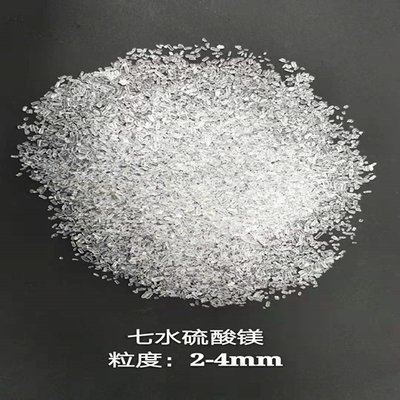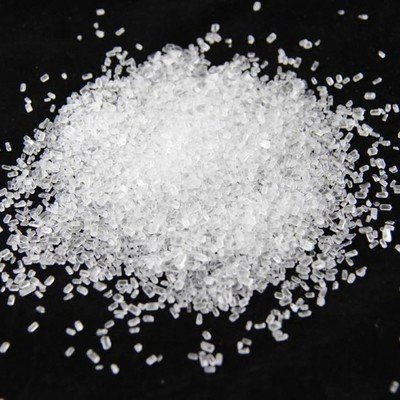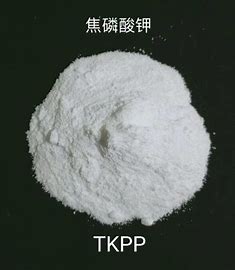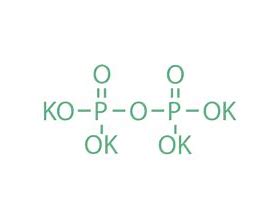Magnesium sulfate heptahydrate10034-99-8MgSO4·7H2O
In the field of chemical engineering, magnesium sulfate heptahydrate is a highly valuable compound. Its unique properties and wide range of uses make it play an important role in multiple industries.

I. Basic Information
Magnesium sulfate heptahydrate, with the English name magnesium sulfate heptahydrate, is also known as sulfur bitter, bitter salt, Epsom salt, etc. Its chemical formula is MgSO₄·7H₂O, with a molecular weight of 246.47. Its CAS registration number is 10034 – 99 – 8, and its EINECS number is 231 – 298 – 2. In appearance, it is a white powdery substance with a melting point of 1124°C and a density of 1.68.
Its molecular structure determines many of its properties. In terms of chemical composition, magnesium sulfate heptahydrate consists of magnesium ions (Mg²⁺), sulfate ions (SO₄²⁻) and seven crystalline water molecules. This structure enables it to exhibit diverse physical and chemical behaviors under different environmental conditions.
II. Physical and Chemical Properties
In terms of physical properties, industrial magnesium sulfate generally refers to the heptahydrate form. It appears as colorless fine acicular or oblique columnar crystals, odorless but with a bitter taste. Its density at 25°C is 1.68g/mL. It is readily soluble in water, and when dissolved in water, it rapidly ionizes into magnesium ions and sulfate ions. It is slightly soluble in ethanol and glycerol and insoluble in acetone. Its solubility characteristics enable it to be applied in different solvent systems in various ways.
In terms of chemical properties, magnesium sulfate heptahydrate is unstable under normal temperature and pressure. In dry air (at room temperature), it loses one molecule of water of crystallization. When heated, it undergoes a decomposition reaction. At 150°C, it loses six molecules of water of crystallization, and at 200°C, it loses all water of crystallization to form the anhydrous substance. It is slightly weathered in air. This sensitivity to temperature and humidity determines that it requires specific conditions during storage and use.

III. Storage Method
Given the properties of magnesium sulfate heptahydrate, its storage requires specific conditions. It should be stored in a cool, dry and ventilated warehouse, not exceeding 48°C
IV. Synthesis Methods
There are various synthesis methods for magnesium sulfate heptahydrate. The bitter brine method from seawater salt production is an important preparation route. The bitter brine obtained from seawater salt production is evaporated by the brine blending method to produce high-temperature salt, which contains MgSO₄ > 30%, NaCl < 35%, MgCl₂ about 7%, KCl about 0.5%. The high-temperature salt is leached with a 200g/L MgCl₂ solution at 48°C. At this time, NaCl dissolves less, while MgSO₄ dissolves significantly.
V. Main Applications
Magnesium sulfate heptahydrate has a wide range of applications. In the manufacturing of porcelain, pigments and fireproof materials, it is also an important raw material, which can affect the performance and quality of the products.
In the medical field, magnesium sulfate heptahydrate is used as a laxative. Its laxative effect is due to its special action mechanism in the intestine. Since it is slowly absorbed and rapidly excreted, it generally does not exhibit toxic effects. However, large doses of internal use may lead to nerve and muscle paralysis and cardiac failure. In the microbial industry, it is used as a component of the culture medium and a brewing additive. It can supplement magnesium elements in brewing water and provide necessary nutrients for the fermentation process, thereby improving fermentation capacity.
In the leather industry, magnesium sulfate heptahydrate can be used as a filler to enhance the heat resistance of leather. In agriculture, it is an important magnesium fertilizer, which can supplement magnesium elements required for the growth of crops and promote photosynthesis and metabolism of plants. In the light industry, it is used in the production of fresh yeast and monosodium glutamate, and can also be used as a stabilizer for calcium hydrogen phosphate in toothpaste production. In cement production, it acts as a coagulant.
In the food industry, magnesium sulfate heptahydrate is an important food additive, used as a nutritional supplement, curing agent, flavor enhancer and processing aid. In the brewing industry, it can supplement magnesium in brewing water, improve fermentation capacity, and improve the flavor of synthetic sake (dosage 0.002%). In dairy products, China stipulates that its usage amount is 3 – 7g/kg. In drinking liquids and milk beverages, the usage amount is 1.4 – 2.8g/kg. In mineral beverages, the maximum usage amount is 0.05g/kg.
In the feed industry, magnesium sulfate heptahydrate is used to supplement trace element magnesium in feed additives. Magnesium is an auxiliary factor for many enzyme systems in animals and an important component of bones, playing a key role in the growth and development of animals. In the field of analytical chemistry, it can also be used as an analytical reagent, for example, as a precipitating agent for sulfates.
VI. Safety Information
In terms of safety, the customs code of magnesium sulfate heptahydrate is 2833210000. It is listed in WGKGermany: 1, and the safety instructions are S24/25, which means that contact with skin and eyes should be avoided. Its RTECS number is OM4508000. Although the internal use of magnesium sulfate generally does not exhibit toxic effects, large doses may still pose hazards. At the same time, it also has a certain impact on water bodies.
Magnesium sulfate heptahydrate plays an indispensable role in many industries due to its rich properties and wide applications.






